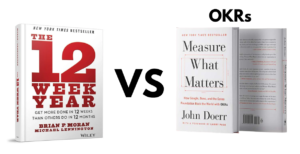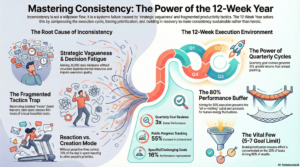
A curated review of the most complete 12-Week Year templates — free and paid, for 2026.
Updated: 2 January, 2026 • by Dan Mintz

The 12-Week Year company has its own app / template.
But…it is soooo expensive and soooo outdated. Therefore, I have decided to dive into exploring and researching the best alternative templates for 2026. The 12-Week Year is considered one of the top personal productivity systems, and finding an effective template or app is definitely worth the effort.
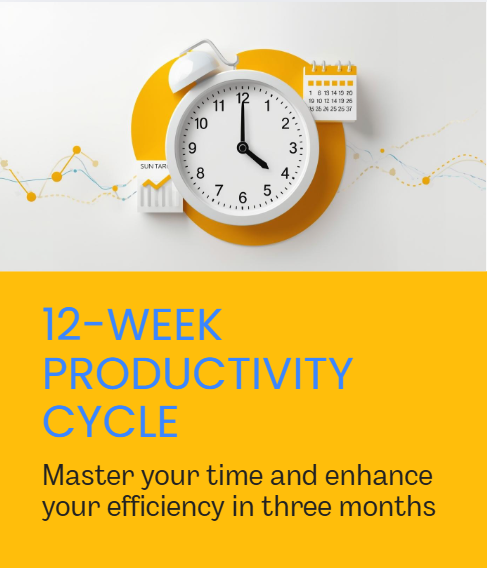
Get the 12-Week Year template used by our team
Our top recommendations to help you and your team.
Platform: Notion
Creator: Dan Mintz, The 12-Week Breakthrough
Price: Free (for now)
Quick Verdict: The best most robust template out there, and most loyal to the source
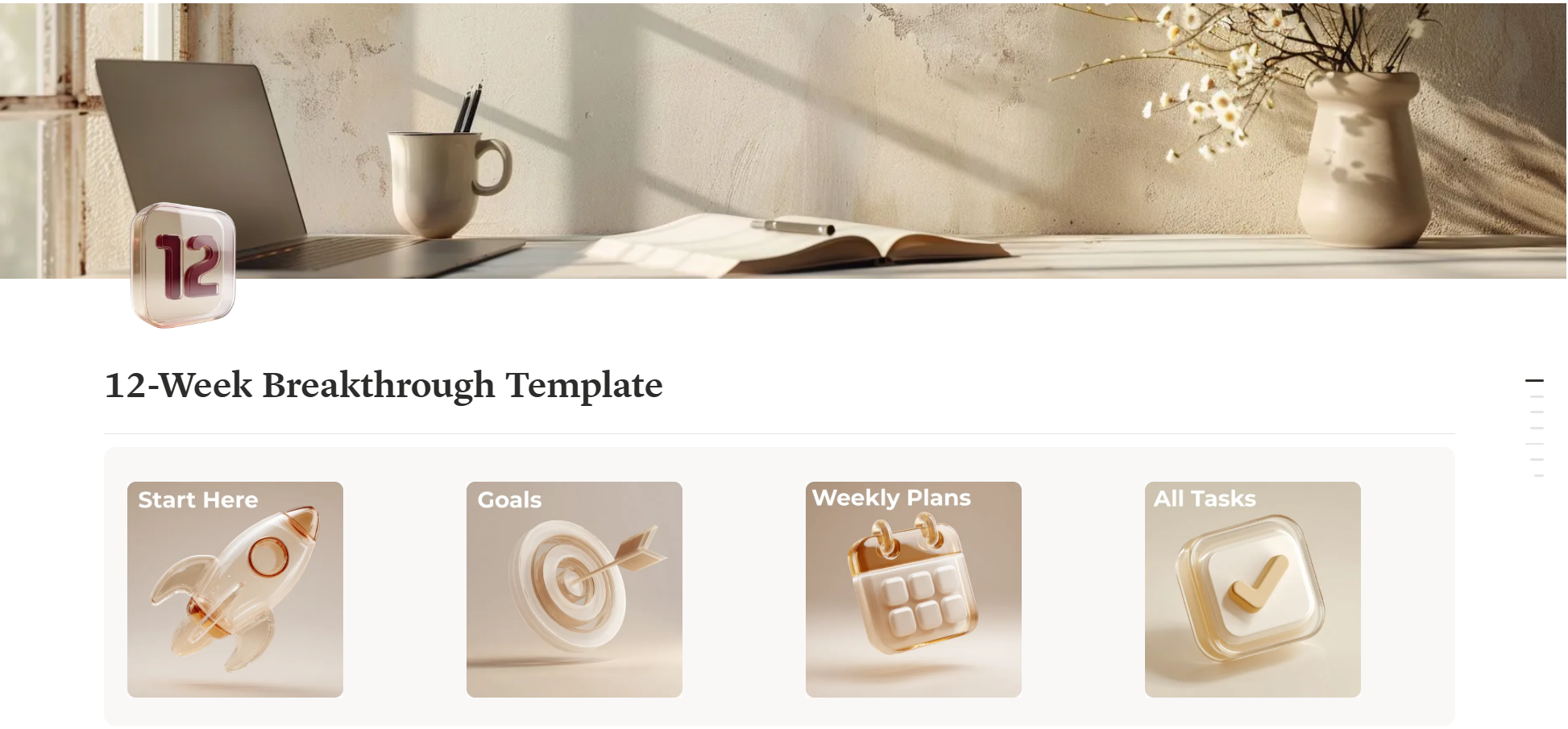
Platform: Notion
Creator: Tony David (A notion template creator)
Price: Free (donation an option)
Quick Verdict: The second best option, but has not been updated for a long time.
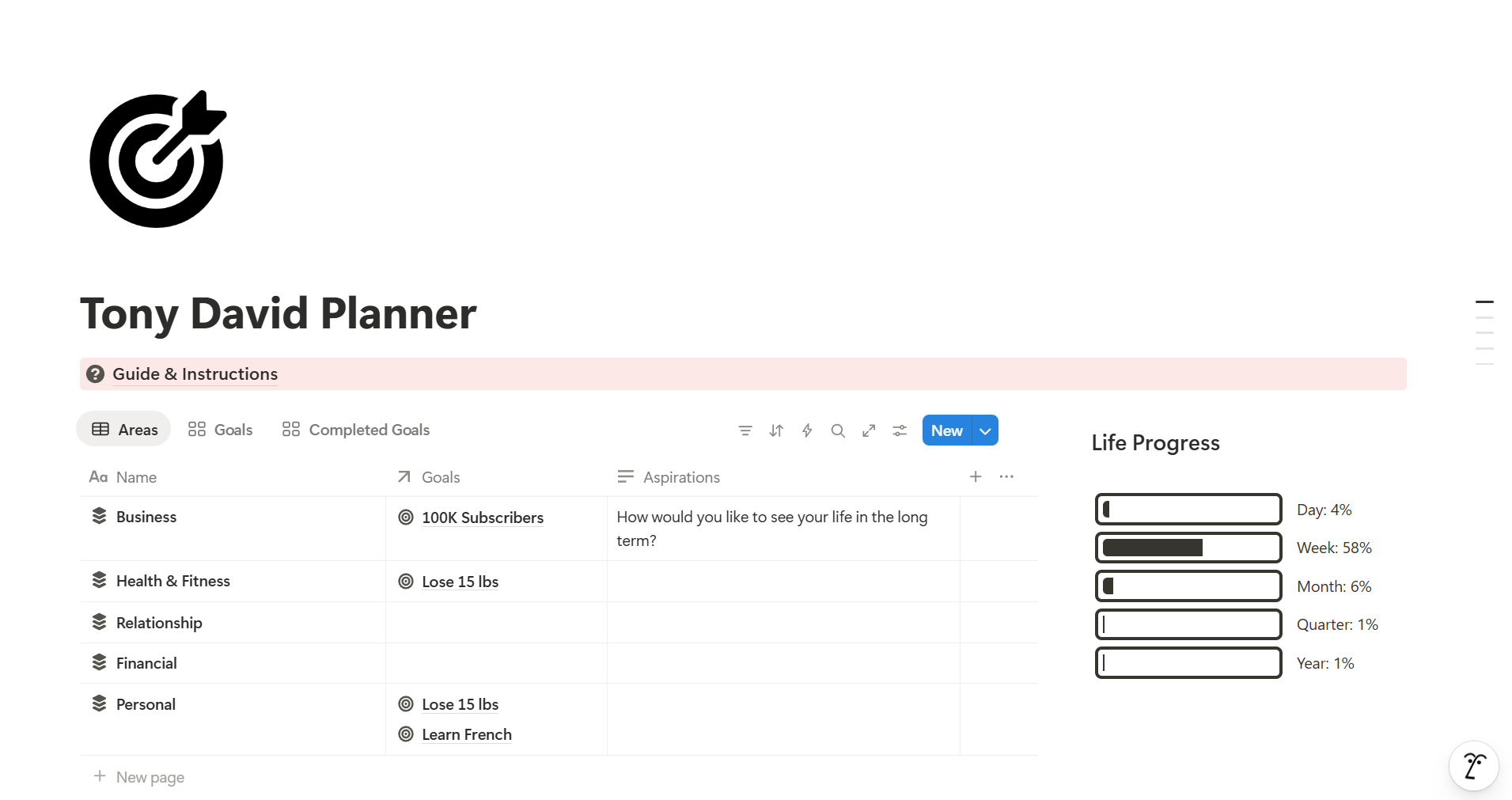
Platform: Web-based Application
Creator: The 12-Week Year Company
Price: $695 annual subscription
Quick Verdict: Achieve! is the official software of the 12 Week Year. Outdated, expensive, a closed system.
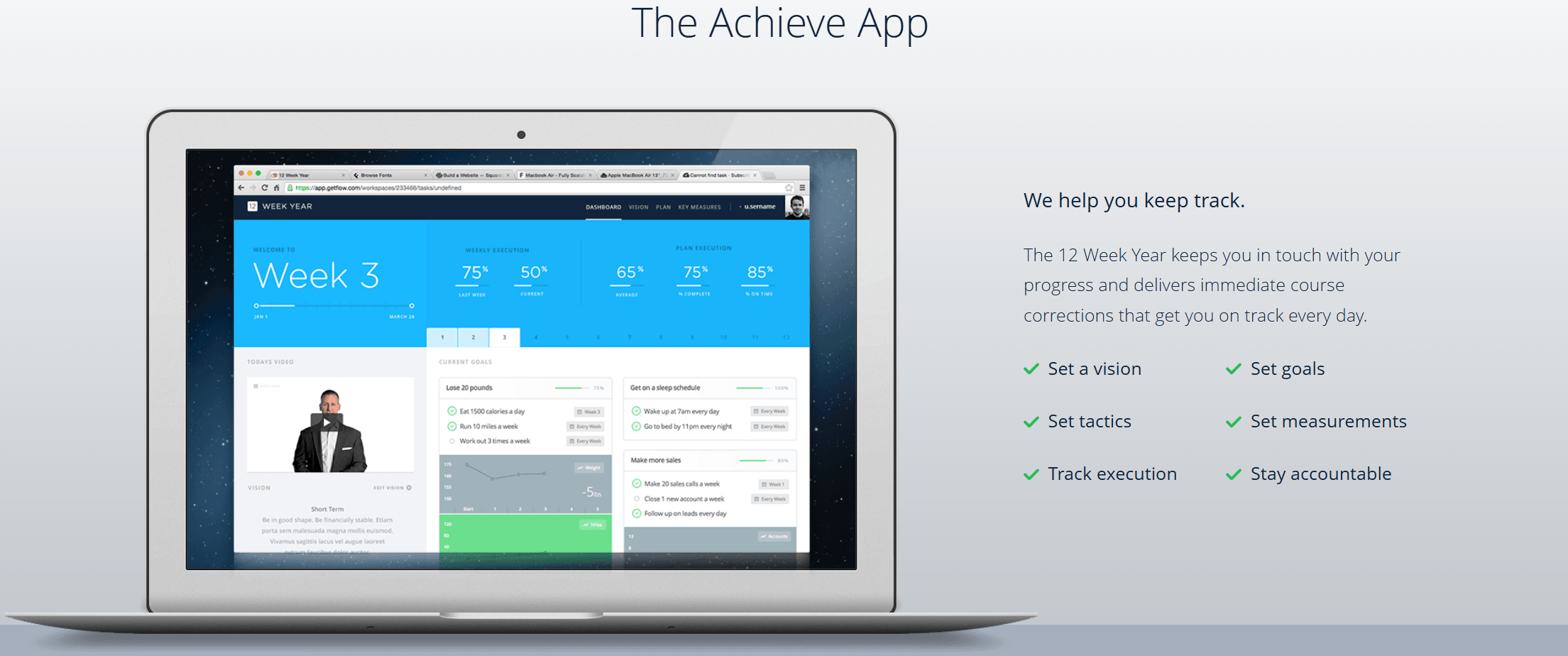
Platform: Google Sheets
Creator: MindfulMarks.com
Price: $27
Quick Verdict: An effective yet simple Google Sheet template that is aligned with the 12-Week Year system, but lacks depth and robustness.
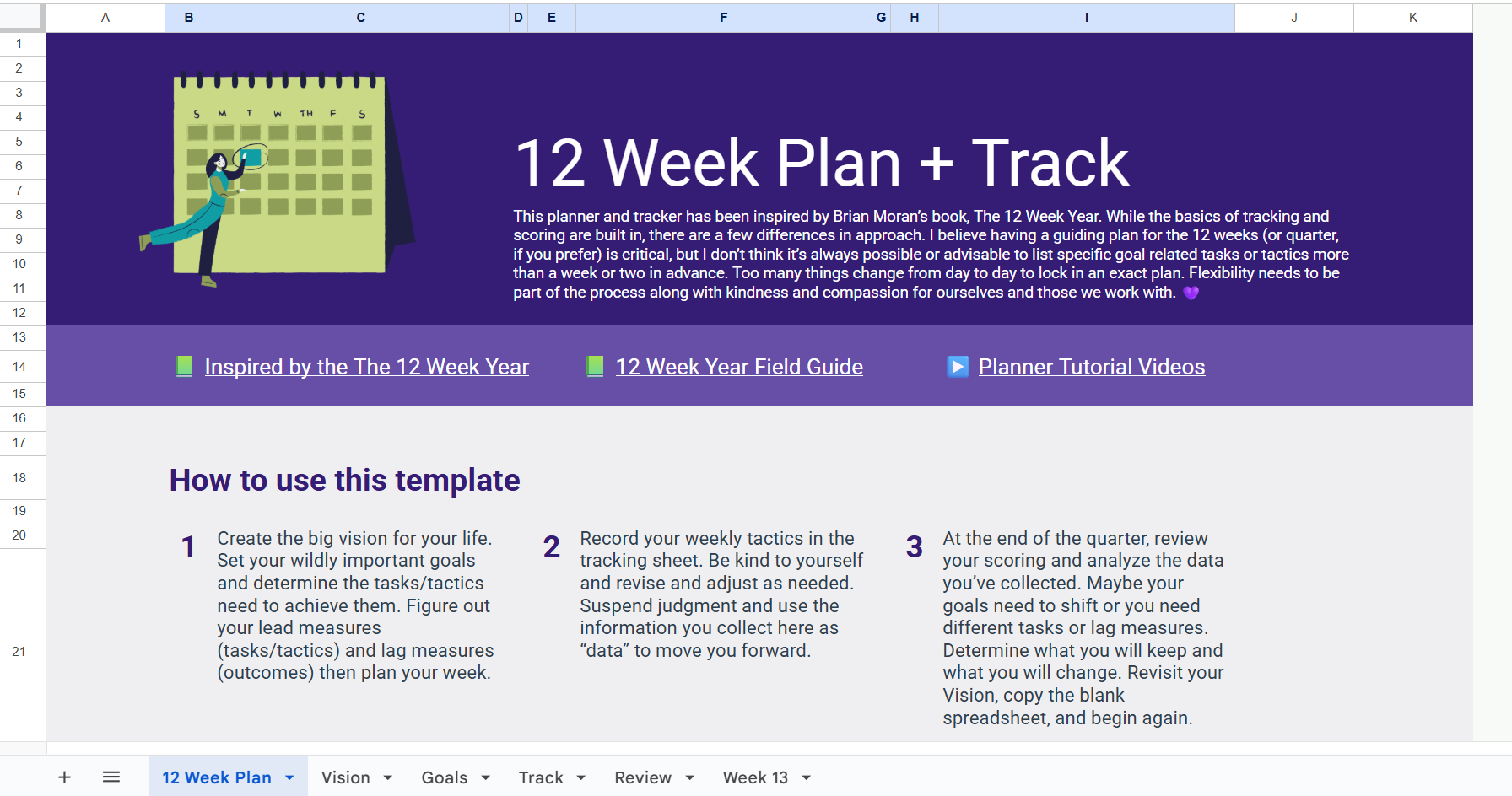
Platform: xTiles
Creator: xTiles
Price: $6.95 / Month (there’s a limited free option)
Quick Verdict: A very good template, visually designed. It is a closed system – you must use their platform which is relatively unknown.
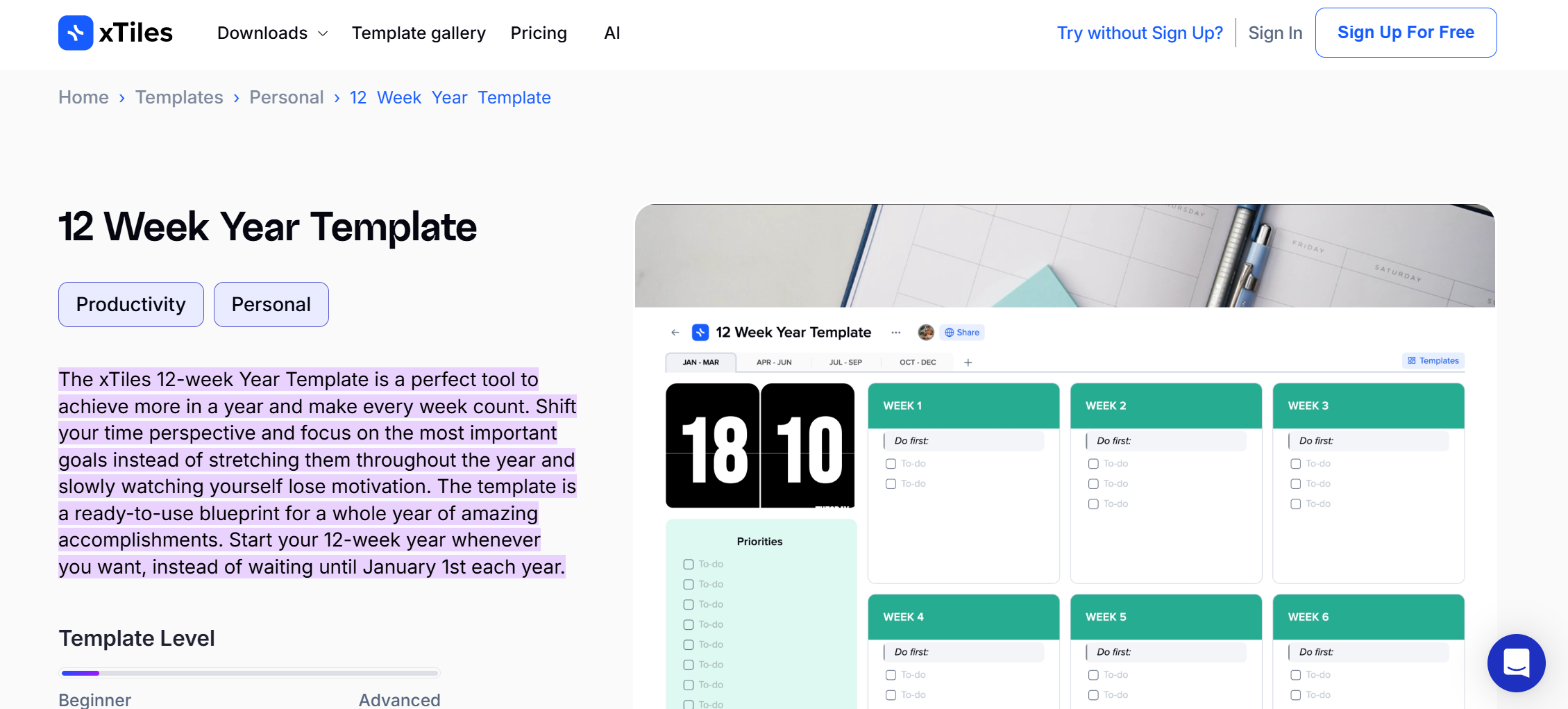

Get the 12-Week Year template used by our team
The 12-Week Year is a high-performance productivity framework created by Brian Moran and Michael Lennington. It redefines a “year” as 12 weeks, eliminating the year-end “push” and replacing it with a consistent sense of urgency. The system relies on five disciplines: vision, planning, process control, measurement, and time use.
A high-quality template for 2026 should offer more than just a task list. To be effective, look for:
Pillar Support: Integrated sections for long-term vision and 12-week goals.
Automated Scorekeeping: A way to calculate your execution percentage weekly.
Weekly Planning: A dedicated space to translate goals into daily tactics.
Platform Flexibility: Compatibility with modern tools like Notion or Google Sheets.
Currently, The 12-Week Breakthrough Template by Dan Mintz is the top-rated free option. It is built on Notion and is widely considered the most faithful to the original methodology. It prioritizes “execution discipline” and “scorekeeping” over general aesthetic dashboarding.
For most users in 2026, the answer is no. While it is the official software from the 12-Week Year company, it is currently priced at $695 annually. Users often find the interface outdated, the system closed to customization, and the price-to-value ratio significantly lower than modern Notion-based alternatives.
| Template / App | Platform | Price | Best For |
| 12-Week Breakthrough | Notion | Free | Best overall; faithful to source |
| Tony David Template | Notion | Free / Donation | Beginners; simple & lightweight |
| Achieve! App | Web | $695/yr | Official purists (but outdated) |
| Mindful Marks | Google Sheets | $27 | Spreadsheet lovers |
| xTiles Template | xTiles | $6.95/mo | Visual learners |
Yes. Notion is arguably the most popular platform for this system in 2026. Templates like the 12-Week Breakthrough and Tony David’s version leverage Notion’s databases to automate scorekeeping and link daily habits to 12-week objectives.
The Mindful Marks Template is the leading Google Sheets option. While it lacks the automation of Notion, it is ideal for those who prefer a linear, spreadsheet-based approach to tracking metrics and tactics.
Scorekeeping is the most critical part of the 12-Week Year. It measures your execution, not your results. A great template should calculate the percentage of planned tactics you completed each week. If you complete 85% or more, you are statistically likely to achieve your goals.
Note: Many “light” templates omit scorekeeping, which turns the system into a basic “to-do list” rather than a high-performance operating system.
In the context of 2026, templates like the Tony David Notion Template or the Achieve! App are considered outdated because they haven’t been updated to utilize modern UI/UX improvements or the latest Notion features (like formulas 2.0 or advanced database buttons). This can make them feel clunky or manual compared to newer “Breakthrough” systems.
If you want a balance of simplicity and effectiveness, Tony David’s Notion Template is a classic starting point. However, if you are serious about achieving results immediately, the 12-Week Breakthrough is recommended because it “enforces” the rules of the system more strictly.


